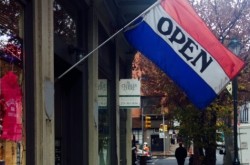November 30, 2015
There are many acronyms out there, especially as the world of social media grows and shortened-speak becomes more of Americans every day lexicon.
Government is also known for its acronyms and “CIKR” certainly fits the mold. CIKR stands for “Critical Infrastructure and Key Resources”. It is an umbrella term that covers assets vital to the United States, whether they be national security and safety, public health or economy.
It is a term that businesses may be unfamiliar with but which stands for something so important that the Department of Homeland Security designated November as Critical Infrastructure Security and Resilience Month. It is a term that should become part of your business Lexicon.
Essentially, CIKR is American’s every day existence: from power, water, government facilities, transportation, telecommunications, and the list goes on. These are mostly private-sector assets and systems that exist, which if disrupted, would have a debilitating effect on United States citizens every day way-of-life in national and economic security.
Philadelphia businesses, whether they be Main Street mom-and-pop or Center City corporate, play a critical role when it comes to sustaining a sense of normalcy to city residents and workers.
A program we offer at the Philadelphia Office of Emergency Management is our Business Continuity Workshop. Simply put, in CIKR terms, how would you as a business owner go on if there should be an emergency, man-made or natural, virtual or physical, that disrupts your everyday way-of-life?
Could you go on?
According to the Institute of Business and Home Safety, up to 25 percent of small and medium-sized businesses fail within three years of experiencing a major emergency. An August 2015 survey conducted by Harris Interactive on behalf of Nationwide says 75 percent of small business owners do not have a disaster recovery plan in place. More than half say it would take at least three months to recover from a disaster.
These surveys say one thing: Being unprepared for an emergency literally costs people their business.
Some basic questions we ask of business owners and employees during our Business Continuity Workshop that you can ask yourself is:
- How long can your business stay open if you lose power and are on generator?
- Has your business ever been closed by an emergency? What if it happens again?
- What if your shipping routes are impacted by storm damage?
- Do you have back-up contracts?
- Do you back your data up off-site?
We offer more information on our website regarding business continuity, including a toolkit to help you prepare a continuity of operations plan, or COOP since we’re speaking of government acronyms.
If you are a local businesses or non-profit in the City of Philadelphia and would like to request OEM to present a Business Continuity Workshop for you and your employees, visit our preparedness workshop page to get more information.
An easy, simple yet essential way to be prepared is to stay informed. Get emergency alerts from OEM’s ReadyPhiladelphia program sent to your phone or email to keep you informed prior to and during an emergency. Also, look for PhilaOEM on Twitter and Facebook.

